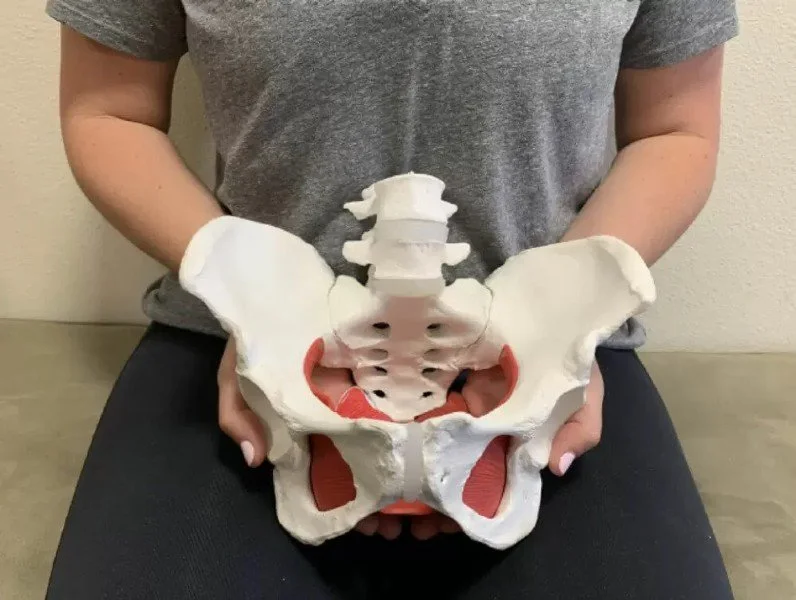Pelvic Floor Dysfunction is Treatable
Pelvic Floor disorders are more common than people realize.
The pelvic floor muscles are essential for optimum everyday function and, when weak or too tight, can affect the quality of life for both women and men.
Pelvic floor muscles stabilize our hips and trunk when standing or walking. They support the organs such as the bladder, uterus (female), rectum, prostrate (male), intestines, cervix, and vagina.
When the muscles in the pelvic floor are too weak or too tight, it can lead to pelvic floor dysfunction.
Tight muscles are related to a hypertonic pelvic floor and can cause pressure or pain in your pelvic area, low back, or hips. It can happen to people who vigorously work out and keep their muscles switched on without giving them time to relax. High levels of stress can cause muscles to tighten. People who don’t want to use public restrooms hold on to their bladder or bowels for hours which tightens the muscles.
You may experience trouble relaxing, straining when emptying the bowels, painful sex, and pelvic pain. Tight muscles can also put tension on the surrounding hip and pelvic muscles, such as the hamstrings.
Pelvic organ prolapse happens when the muscles and ligaments are too weak, and one or more organs in the pelvis drop down from their regular positions, creating a bulge in the womb (uterus), bowel, bladder or top of the vagina. A weak pelvic floor or hypotonic pelvic floor means the muscles are too slow or not strong enough to work quickly or support and stabilize the pelvis to support the bladder and bowel properly. This pelvic floor dysfunction shows up in the loss of bladder control called incontinence and can happen when you exercise, laugh, sneeze, jump, or lift something.
Figuring out whether your pelvic floor muscles are more naturally tight or weak can be essential to receiving the correct treatment and finding more ease in your daily activities.
A Pelvic Floor Physiotherapist specializes in helping men and women with pelvic floor dysfunction, pelvic pain, incontinence, or pelvic organ prolapse. With their additional education and training, they can assess, externally and internally, to find and treat dysfunction and pain.
Pelvic Floor Treatments
If you have any of these concerns, feel free to call Mainway Physiotherapy and book an appointment with Deanna Jensen, who specializes in Pelvic Floor Therapy!
CLICK HERE To Make an Appointment or Call 905-332-3800 To Speak With Us Today.
You may also enjoy this article:


